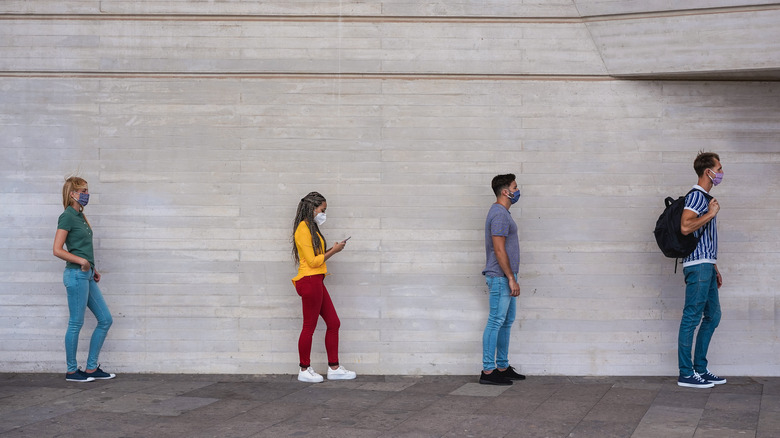
First identified in India, the delta variant has quickly become the dominant variant of COVID-19 in the world, according to the World Health Organization (via Reuters). Declared as a “variant of concern” in the U.S. by the Centers for Disease Control and Prevention, WHO officials are now advising those who are fully vaccinated to “play it safe” after mask and social distancing mandates continue to be lifted in many states across the country (via CNBC).
“People cannot feel safe just because they had the two doses. They still need to protect themselves,” Dr. Mariangela Simao, WHO assistant director-general for access to medicines and health products, said in a statement, adding, “Vaccine alone won’t stop community transmission. People need to continue to use masks consistently, be in ventilated spaces, hand hygiene … the physical distance, avoiding crowding.”
Especially since one of the major worries of the delta variant is its resistance to vaccines. As a recent study published by Public Health England found (via Nature), those who have had a single dose of the AstraZeneca or Pfizer vaccine have a reduced risk of catching the delta variant by 33%, compared to 50% of the alpha strain originally found in England (via CMAJ News). This risk reduces substantially with two doses, with a second dose of AstraZeneca boosting protection up to 60% (compared to 66% of the alpha variant), and Pfizer increasing effectiveness up to 88% (compared to 93% of the alpha variant) (via Nature).
The delta variant seems to be spreading faster in communities where people aren't fully vaccinated

Another study (which is yet to be peer-reviewed), conducted by genomics company Helix in San Mateo, California, found that of the 20,000 samples sequenced since April in the United States, the delta variant of COVID-19 seems to be spreading faster in counties with a lower percentage of residents who have been fully vaccinated, specifically areas where less than 30% of residents have received all of their shots (via Nature).
As the delta variant is 60% more transmissible than the alpha variant, due to mutations in the spike protein (via National Geographic), it’s no surprise that it’s become a strain of concern for scientists. “This combination of high transmissibility, high severity, and escape from vaccines make delta a very, very dangerous variant,” Deepti Gurdasani, a clinical epidemiologist at Queen Mary University in London told Nat Geo.
Further, White House chief medical advisor Dr. Anthony Fauci declared on June 22 that new delta variant was “currently the greatest threat in the U.S. to our attempt to eliminate COVID-19” (via CNBC).
Source: Read Full Article
